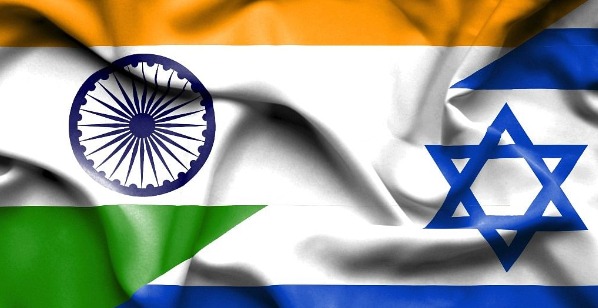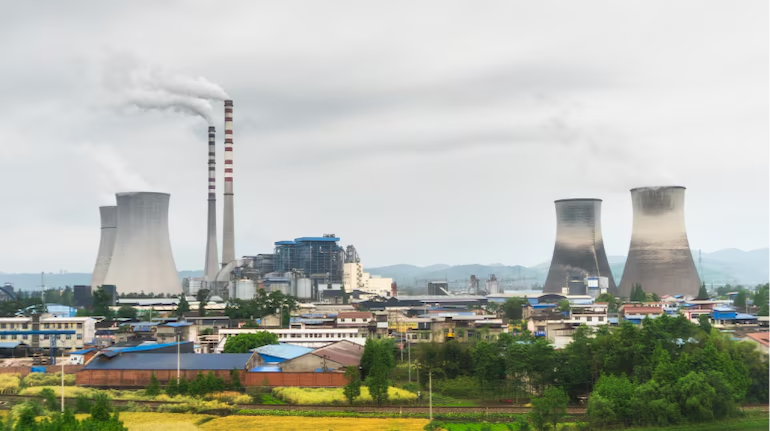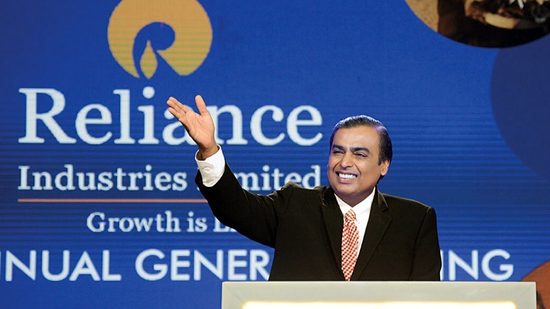
FTA between India and Israel will help realize bilateral trade potential between countries says Anat Bernstein-Reich newly elected president of Israel-Asia CC
“Free Trade Agreement is necessary because Every man lives by exchanging.”
Man needs to trade, as the saying says, in order to live a better life. Exchange is a modern, worldwide notion that is not limited to two people. All countries’ trade connections have improved as a result of globalization. By facilitating more effective marketplaces, globalization aims to strengthen economies all around the world. In addition, the idea of trade agreements was established through trade relations.
What are Trade Agreements?
When two or more countries reach an agreement on the terms of their trade, a trade agreement is created. They choose the import and export tariffs and duties that various nations apply. Every trade deal has an impact on global trade.
So what is a Free trade Agreement ?
FTAs are agreements between two or more trading coalitions that primarily agree to reduce or get rid of barriers to significant trade between them, including tariffs and non-tariff ones.
Under a free trade policy, there are few to no government tariffs, quotas, subsidies, or prohibitions that prevent the exchange of products and services across international borders. The idea of free trade is the antithesis of economic or trade protectionism.
In the modern world, a formal and mutual agreement between the participating countries is frequently used to achieve free trade policies. A free-trade policy, however, can just be the absence of any trade limitations.
Why Free Trade Agreement is Significant for India
1. In the post-Covid world, India has an opportunity.
2. In the post-Covid world, India has an opportunity.
3. An Bigger Market size
4. Increase in Exports
India has benefited from FTAs. India’s exports of manufactured goods to countries with which it has trade agreements increased on average by 13.4% per year between 1993 and 2018.
Israel-India Relations
- Indian delegates have arrived in Jerusalem in preparation for the resumption of the free trade deal between Israel and India.
- The Indian Ministry of Industry and Trade’s top delegation will meet with their Israeli counterparts to discuss the ground rules, according to the Economic Ministry of Israel. However, the ministry did not specify a timeframe for the restart of genuine trade negotiations.
- India Economic ties between India and Israel have become stronger, and the two nations have been developing close ties for over eight years. Since Indian Prime Minister Narendra Modi came to office, the two nations have also established a strategic, military, and technological collaboration.
- India and Israel’s bilateral trade increased from $200 million in 1992 to $6.3 billion in 2021.
- Along with the US and Russia, Israel has emerged as one of the major arms suppliers. According to Mr. Ron Molka, a former Israeli ambassador, the commerce would be very beneficial and would also lower trade obstacles for Israeli companies doing business in India.
Commercial Relations
- Israel is India’s top provider of military hardware, and Israel is India’s second-largest supplier of hardware behind Russia. Military trade between the two countries was estimated to be worth $9 billion between 1999 and 2009. Information-sharing on terrorist organisations and collaborative military training are also part of the two countries’ military and strategic ties.
- Bilateral commerce has expanded into a variety of industries recently, including pharmaceuticals, agriculture, IT and telecom, and homeland security. The third-largest trade partner of Israel in Asia and the seventh-largest overall is India. Precious metals and stones, chemical goods, textiles, and textile products, among other things, are India’s main exports to Israel.
- Precious stones and metals, chemicals, and mineral goods, as well as basic metals, machinery, and transportation equipment, are among India’s main imports from Israel.
Agriculture:
Israel has provided India with expertise and technologies in horticulture mechanisation, protected cultivation, orchard and canopy management, nursery management, micro-irrigation, and post-harvest management, particularly in Haryana and Maharashtra, as part of a comprehensive work plan for cooperation in agriculture signed on May 10, 2006.
Products and technologies for drip irrigation developed in Israel are now widely employed in India. Through their expertise in high milk yield, some Israeli businesses and specialists are offering their skills to manage and develop dairy farming in India.
Security & Defense:
Israel exports vital defense technologies to India, and regular military exchanges take place.
Security-related topics are cooperative, and a Joint Working Group on Counter-Terrorism is one example.
Three significant agreements on the protection of classified information, cooperation in homeland security, and mutual legal assistance in criminal matters were inked by India and Israel.
Since 2015, IPS officer trainees have completed their training at the National Police Academy in Hyderabad with a one-week foreign exposure training at the Israel National Police Academy.
The Army has opted to use the emergency procurement path to purchase launchers, spike anti-tank guided missiles (ATGM), and extra Heron unmanned aerial vehicles (UAV) from Israel.
Cooperation in Science, Technology, and Space:
The Joint Committee on S&T, created by the S&T Cooperation Agreement signed in 1993, is responsible for regulating India-Israeli S&T cooperation.
The Department of Science and Technology in India and the National Authority for Technological Innovation in Israel signed a Memorandum of Understanding in 2017 to establish the India-Israel Industrial R&D and Innovation Fund (I4F).
This agreement, which calls for a $20 million investment from each party over a five-year period, is anticipated to be crucial in enabling Israeli and Indian businesses to work together on R&D initiatives.
Benefits of the FTA between India and Israel for India
Only when business and economic interests are mutually beneficial and the associations have a direct impact on people, will this partnership reach its full potential. The advantages must be reachable and available to regular people. The following benefits are listed:
THIS IS IT
- The transformational adventures of numerous self-help women’s collectives in India, who have paved the way with their grassroots development model, might be used to benefit Israel.
- One of the few nations that can assist India in becoming self-sufficient in the production of semiconductors is Israel. Both nations must step forward to create an institutional structure to share their local practices when it comes to citizen-to-citizen engagement.
- For instance, India needs to learn a lot from the inspirational role that Israel’s agricultural cooperatives, Kibbutz and Moshav, play in the development of that country.
- Soft power diplomacy is crucial for fostering intercultural understanding and boosting economic gains from active international travel.
- The vibrant culture of research and innovation that exists in Israel could be advantageous for India’s top universities.
- The current semiconductor chip shortage may prompt cooperation by establishing chip production in India.
- Nothing has a greater impact on our lives than cultural contacts and exchanges. Cultural ties between India and Israel have become stronger over time.
- After the current disturbance, this needs to be restored and a two-way street established.
FTA will assist in realising India and Israel’s potential for bilateral trade: Bernstein-Reich, Anat
The Free Trade Agreement (FTA) between Israel and India will serve as a catalyst in realising the enormous trade potential, according to Anat Bernstein-Reich, the recently elected President of the Israel-Asia Chamber of Commerce, who has worked to promote Indo-Israel bilateral trade for more than two decades.
Bernstein-Reich would succeed Matan Vilnai, who had previously held the positions of Minister in the Israeli government, Deputy Chief of Staff of the Israeli Army, and Ambassador of Israel to China. She would be the first woman to be elected president of the esteemed organisation since its founding in 1984.
Vilnai, who presided over the Chambers for the previous six years, will now hold the position of honorary President.
“Despite reaching unprecedented heights, trade relations between India and Israel have not yet reached their full potential.” The much anticipated Free Trade Agreement will spur the same “Bernstein-Reich conversation with PTI.
“I urge the parties to end the impasse in the ongoing FTA negotiations. “I was recently in India, and during my conversations with officials there, they also requested that we look into methods to speed the process along to increase bilateral trade,” she said.
The Chamber’s General Assembly, which recently convened for the 2023 term, chose Bernstein-Reich to be its new president last week.
Representatives from Israeli ministries and business organisations were present during the meeting.
Jonathan Zadka, a former Israeli consul general in Bangalore, and Shai Mozes, a former economic attaché in Bangalore who is now the head of the Asia Pacific Desk at the Ministry of Economy, were among those who attended the General Assembly.
In addition to serving as Chairperson of the Israel-India and Sri Lanka Chambers under the Israel-Asia Chamber, Bernstein-Reich will continue in that capacity.
The development of the Agribator, the hub for Israeli agricultural innovations in New Delhi, was one of many transactions on the Israel-India axis that investment banker and lawyer Bernstein-Reich, who has been working in India for the past 24 years, was involved in.
She managed the Israeli Innovation Authority’s Israel-India Bridge for Innovation Program in 2018. Prime Ministers Benjamin Netanyahu and Narendra Modi collaborated on a programme called The Bridge to help Israeli and Indian start-ups access each other’s markets.
In 2020, WeSchool presented her with the “Friend of India Award” in recognition of her efforts to develop the Indian economy, and Jharkhand Rai University conferred an honorary doctorate on her in 2022.
Bernstein-Reich, known locally as the “Maharani of India,” emphasised that the current bilateral trade number of over 7 billion US Dollars, excluding defence, doesn’t “truly present the actual reality.”
“Over the past few decades, bilateral trade between India and Israel has become significantly more diverse and is still expanding.” Recent partnerships in the fields of health technology, energy, water management, etc. continue to give expanding bilateral economic relations fresh momentum. “The potential is enormous, so every effort must be made to conclude the free trade agreement that would further strengthen it,” she emphasised.
According to her, “Our chamber has inked MOUs for collaboration with the top Indian chambers of commerce, including FICCI, CII, ASSOCHAM, and SICCI (South India).”.
In a recent initiative, Bernstein-Reich said that her group, along with the FICCI Ladies League, had also established the IIBWF—Israel-India Business Women Forum—to support partnerships between women-owned firms.
In conjunction with the Women Economic Forum (WEF), which met in New Delhi in December 2022, Bernstein-Reich was presented with the Woman of the Decade award.
She holds a teaching job in the Asian Studies department at Haifa University and is a Tel Aviv University Law School alumna with an MBA in Finance from the University of San Francisco.
The Israel-Asia Chamber of Business is a global chamber of commerce that supports trade between Israel and 15 Asian nations, including nations like Indonesia and Malaysia, with which there are no official ties.
The two countries with the greatest influence on the commercial body’s actions are India and China.
The chamber is one of Israel’s 48 operating bi-national chambers of commerce.
The Israeli government and economic institutions founded the Israel-Asia Chamber of Commerce in 1984 to advance trade with Asia, which was still in its infancy at the time.
Israel’s trade with Asia has increased tenfold over the past 30 years since full diplomatic ties were established with China and India in 1992.
Popular public figures have served as the Israel-Asia Chamber of Commerce’s president since the organization’s founding.
Between 2005 and 2010, Ambassador Amir Hayek, the Israeli ambassador to the UAE, also served as its leader.
In his farewell address, Vilnai said that “now Asia accounts for 60% of the world’s population and comprises the largest economies, generating a worldwide power shift towards the East with India and China being key actors in the world arena.” This comment was taken from a press release.
Bernstein-Reich also holds the position of CEO of the BDO Group Israel’s Israel-India Investment Banking Company.






Comments are closed.